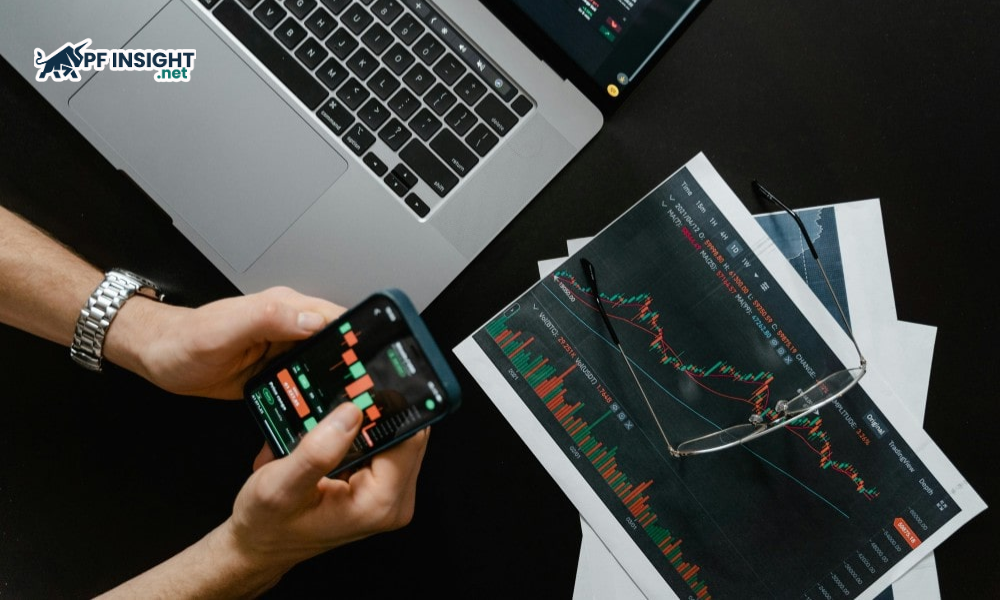Financial investment has been growing rapidly and has become one of the most profitable channels that many traders favor. Among the numerous investment opportunities, prop firms stand out as projects that generate profits through profit-sharing models.
Although proprietary trading firms have become increasingly popular, many traders are still unfamiliar with the term prop firm and how it works. In today’s article from Pfinsight.net, we’ll provide you with detailed information on what is a prop firm? its key features, and whether or not you should consider investing in prop firm programs. Let’s dive in!
What is a Prop Firm?

A prop firm, short for proprietary trading firm, is a company that allows traders to access the firm’s capital to trade and share profits based on performance – without putting their personal funds at risk.
These firms typically offer funded programs with various challenges and evaluation phases. Through these accounts, traders can demonstrate their skills and focus on performance rather than risking their entire personal savings on trading goals.
For example, proprietary trading firms like WeMasterTrade can pay traders up to 90% of profits when they win. On the other hand, potential losses are limited to the initial sign-up or evaluation fees if things don’t go as planned.
One of the best ways for beginners to gain real-world trading experience and increase their potential income without needing large personal capital is to start trading with a prop firm. But it’s not just about money – you also get to manage risk, develop discipline, and trade in a controlled environment with the support of a proprietary firm.
What is prop trading?
Proprietary trading, also known as prop trading, refers to trading activities where traders use the firm’s own capital rather than their personal funds to execute trades. Traders leverage a variety of financial instruments, such as stocks, options, futures, and contracts for difference (CFDs), and participate across multiple financial markets.
The primary objective of proprietary trading is to generate profits for the firm by deploying company-owned funds into financial markets.
Although some companies focus exclusively on proprietary trading, it’s also a strategy used by various types of financial institutions, including:
Banks and financial institutions with dedicated prop trading desks. These institutions historically benefited from access to order flow and market insights, giving them an edge. However, after the 2008 financial crisis, proprietary trading within banks has been subject to strict regulations.
Hedge funds that trade both their clients’ money and their own capital.
High-frequency trading (HFT) firms and market makers that capitalize on rapid market movements.
Commodity trading firms like Vitol, Trafigura, and Glencore that trade both in physical markets and futures contracts.
What is a prop trader?

A prop trader is a trader who trades using a firm’s capital instead of their own or their clients’ funds. These traders typically engage in speculative strategies, including both short-term and long-term trades, to generate profits for the firm.
Prop firms generally give traders autonomy in their trading decisions. However, they enforce strict maximum drawdown limits to manage financial risk. If a trader’s losses exceed a predefined threshold, the firm intervenes and suspends trading activities to prevent further losses.
Prop traders share a portion of their trading profits with the firm that provides the capital. While prop firms grant access to funding, cutting-edge technology, and mentorship from experienced traders, prop traders still face similar challenges as independent traders in the financial markets.
How do prop firms work?
Let’s use hedge funds as an example to understand how proprietary trading firms operate:
- Hedge funds pool capital from clients and trade on their behalf. In return, clients typically receive 60% to 80% of profits based on the fund’s performance.
- Prop firms, on the other hand, trade using their own money rather than managing external investors’ capital.
- This operational model gives prop firms more autonomy, greater flexibility, and the opportunity to retain a higher share of profits.
Advantages of Prop Trading
Individual traders can benefit from proprietary trading in several ways:
- Maximize profit potential: Skilled traders who lack substantial personal capital can scale their earnings through a prop firm. For instance, making significant profits from a $200 personal account is challenging without taking on excessive risk. Prop firms offer these talented traders the chance to trade larger capital and earn substantial returns.
- Trading autonomy: Prop traders often enjoy significant freedom in how they use their allocated capital, although each firm maintains its own risk management policies to prevent uncontrolled losses.
- Learning curve & networking: Working alongside experienced traders and industry professionals gives prop traders invaluable opportunities to learn new strategies, refine skills, and build long-term connections.
- Access to advanced technology: High-quality trading tools – such as real-time news feeds, professional charting software, expert insights, and even premium terminals like Bloomberg – can be expensive for individual traders. Prop firms provide these resources, enabling traders to make informed decisions without bearing the financial burden.
- Reduced personal financial risk: Since the firm provides the trading capital, the trader’s personal financial exposure is significantly minimized.
Disadvantages of prop trading
Despite its advantages, proprietary trading also has notable drawbacks:
- Increased pressure: When trading your own money, you’re accountable only to yourself. However, when trading a firm’s capital, you carry the responsibility of meeting firm expectations and delivering consistent results.
- Lack of job security: Prop firms generally have little tolerance for underperformance and may quickly revoke funding or terminate a trader’s program if targets aren’t met.
- Upfront fees: Many prop firms require traders to pay membership fees or evaluation fees to access funded accounts. Traders must also pass challenges or evaluations before qualifying for funding.
This model has faced scrutiny from regulators and technology firms due to concerns that some companies overpromise potential profits while setting evaluation conditions so strict that most traders never qualify for funding.
How to get started with prop trading?

Getting started with a prop firm depends on the firm’s structure and requirements:
- Traditional in-office prop firms may have strict prerequisites, rigorous screening processes, and require traders to work on-site. These firms often invest heavily in training, technology, and mentorship to support their traders.
- Remote-based prop firms make it easier to get started. Traders receive funded accounts and typically pay an upfront evaluation or membership fee to participate in challenges or assessments.
- During the evaluation phase, traders must meet specific profit targets while staying within maximum drawdown limits. Successful traders receive access to larger capital allocations and, in some cases, higher profit splits.
- Due to recent regulatory changes, many traders are now opting for direct funding models that don’t require upfront fees, focusing instead on live trading accounts without simulated challenges.
Conclusion
We hope this article has helped you understand what is a prop firm, how it works, and the opportunities and risks involved. With the right knowledge and discipline, proprietary trading can be a rewarding pathway for traders looking to scale their earnings without risking significant personal capital.
Don’t forget to visit our website for more insights and updates on trading, investing, and prop firms. Good luck, and happy trading!







